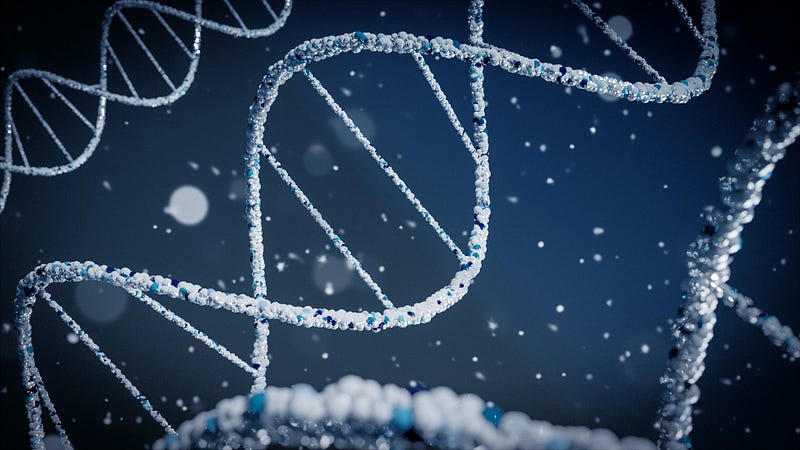Unlocking the Health Benefits of Kindness: How It Changes Lives
Written on
Chapter 1: The Power of Kindness
You are a remarkably intricate individual, influenced by a multitude of physical, psychological, and environmental factors that can either enhance or detract from your well-being. Recent research indicates that even the simplest acts of kindness can have a remarkably positive impact on your health, happiness, and even longevity. Not only do others benefit from your kindness, but you do as well.
Scientific studies affirm that kindness, along with related traits such as gratitude and forgiveness, forms a critical foundation for individual wellness and societal health, as argued by the authors of The Biology of Kindness. Before we explore specific actions you can undertake, let’s delve into the evidence supporting this claim.
This topic transcends merely feeling good. Engaging in kind acts has been shown to benefit both your mental and physical health, affecting even the very DNA that constitutes your existence.

According to the authors, kindness fosters positive mental, emotional, and spiritual energies that bolster physical health, including the ability to combat chronic diseases and influence the pace of aging. While our DNA is inherited and largely immutable, the way our genes express themselves and age can significantly shift based on our habits, actions, and experiences.
Ultimately, the authors contend that lifestyle choices and environmental factors hold more weight than genetics in determining both the length and quality of life for most individuals. Immaculata De Vivo, PhD, a researcher and professor at Harvard Medical School, emphasizes this notion in her writings. “Our lifestyle choices play a significantly larger role in our health than our genetic makeup,” she states. “Chronic illnesses like diabetes, cancer, and heart disease often have genetic underpinnings, but these alone rarely trigger disease onset. Environmental influences and personal choices also play crucial roles.”
Chapter 2: The Evolutionary Advantage of Kindness
In the video "How Kindness Can Boost Your Immune System and Make You Happier | Dr. David Hamilton," the correlation between kindness and immune function is explored. Kindness is not only beneficial on a biological level but also serves as an evolutionary strategy for the survival of humanity, as highlighted by De Vivo and her co-author, Daniel Lumera. They articulate that kindness fosters a sense of community without resorting to conflict or competition.
Researchers define kindness as embodying empathy, generosity, and a spirit of service. Empathy, in turn, enhances our capacity to listen and respond compassionately. Clinical studies support the idea that kindness can alleviate symptoms across various health conditions. For example, programs focused on kindness have been shown to lower blood pressure in individuals with hypertension and improve emotional well-being in cancer patients.
Another intriguing study conducted in 2019 found that merely thinking kind thoughts about others can elevate mood. In this research, participants who engaged in loving-kindness meditation experienced heightened happiness, connection, and empathy, along with reduced anxiety.
In the video "Kindness—It's Good for You!", the benefits of kindness are examined further, affirming its positive impact on mental health and overall well-being.
Section 2.1: Kindness and Its Biological Impact
One behavior associated with kindness is generosity. However, it remains unclear to what extent acts of giving stem from selflessness versus the expectation of reciprocity. Regardless, both altruistic and strategic acts of kindness activate the brain's reward system, creating a "warm glow" sensation.
A review of neuroimaging studies shows that kindness activates specific brain regions differently depending on the motivation behind the act, yet there is significant overlap in activation patterns.
The intricate link between lifestyle choices and biological aging is evident through telomere shortening. Telomeres, akin to plastic caps on shoelaces, protect your chromosomes. As they shorten over time, cellular replication ceases, leading to organ failure or death. Lifestyle factors can accelerate telomere shortening, thus contributing to biological aging and chronic diseases.
De Vivo notes that unhealthy habits such as smoking and sedentary lifestyles can damage telomeres. Conversely, practices like a balanced diet, physical activity, mindfulness, and connecting with nature can help preserve telomeres and promote longevity.
Section 2.2: Actionable Steps for a Kinder Life
In addition to scientific insights, The Biology of Kindness provides practical advice that you can implement immediately to enhance your well-being. The authors identify five core values that contribute to overall wellness:
- Kindness
- Optimism
- Forgiveness
- Gratitude
- Happiness
These values are cultivated through six key strategies:
- Nurturing Relationships: In our increasingly disconnected world, reaching out to an old friend can significantly lift both parties' spirits. A simple message can create a ripple effect of positivity.
- Healthy Eating: A plant-based diet rich in fruits, vegetables, nuts, and whole grains provides essential nutrients that support telomere health and mitigate inflammation. The 80/20 rule—eating healthily 80% of the time—can be a sustainable approach.
- Physical Activity: Even modest amounts of daily exercise (22 minutes) can yield substantial health benefits. Activities like walking, yoga, or any moderate exercise can greatly enhance mood and longevity.
- Mindfulness and Meditation: Mindfulness practices, even for brief periods, can foster clarity and emotional well-being.
- Engagement with Music: Music, whether enjoyed passively or actively, can elevate emotional states, lower stress levels, and promote overall health.
- Connection with Nature: Spending time in natural settings can enhance mood and cognitive function.
In conclusion, the contagion of kindness not only enriches individual lives but can spread throughout communities, potentially transforming societal health. The question remains: Does kindness matter? Clearly, it does—both for personal well-being and for the greater good.